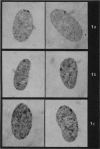Abstract
DNA values of fibroblast-type cells were measured by Feulgen microdensitometry. Cells cultured for periods ranging from 18-48 hr in the presence of 20 μg./ml. chlorimipramine were found to be mainly in the G1 phase and significantly fewer cells were seen in S and G2 phases than in untreated cultures. This indicated that the drug inhibits the initiation of DNA synthesis, a conclusion supported by the cytological findings in which significantly fewer treated cells were seen in prophase of mitosis compared with control cultures. Also fewer treated cells were in anaphase and telophase but significantly more metaphases were seen than in controls. It is concluded that the drug inhibits initiation of mitotic division due, at least partly, to blockage of DNA synthesis, but cells having entered mitosis are arrested at metaphase.
There was evidence of recovery after 3 hr treatment with the drug. The results suggested that the addition of ATP to the medium may enhance recovery.
Full text
PDF

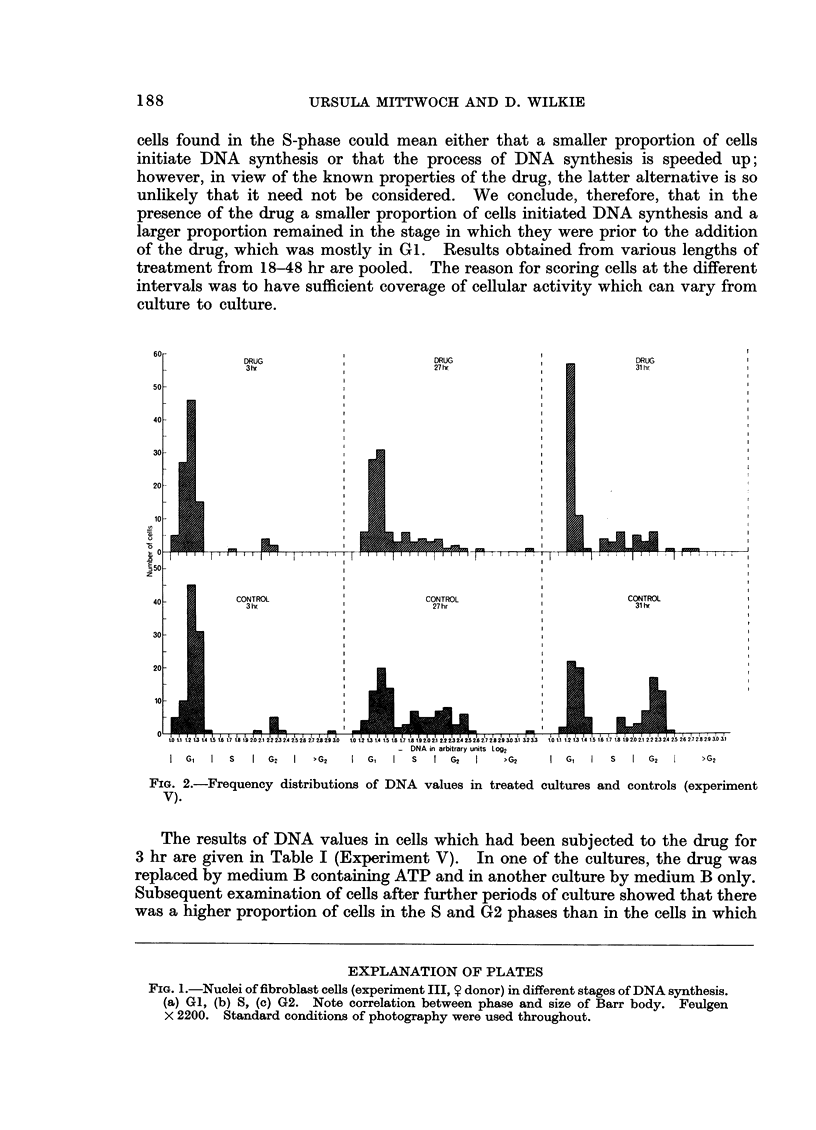
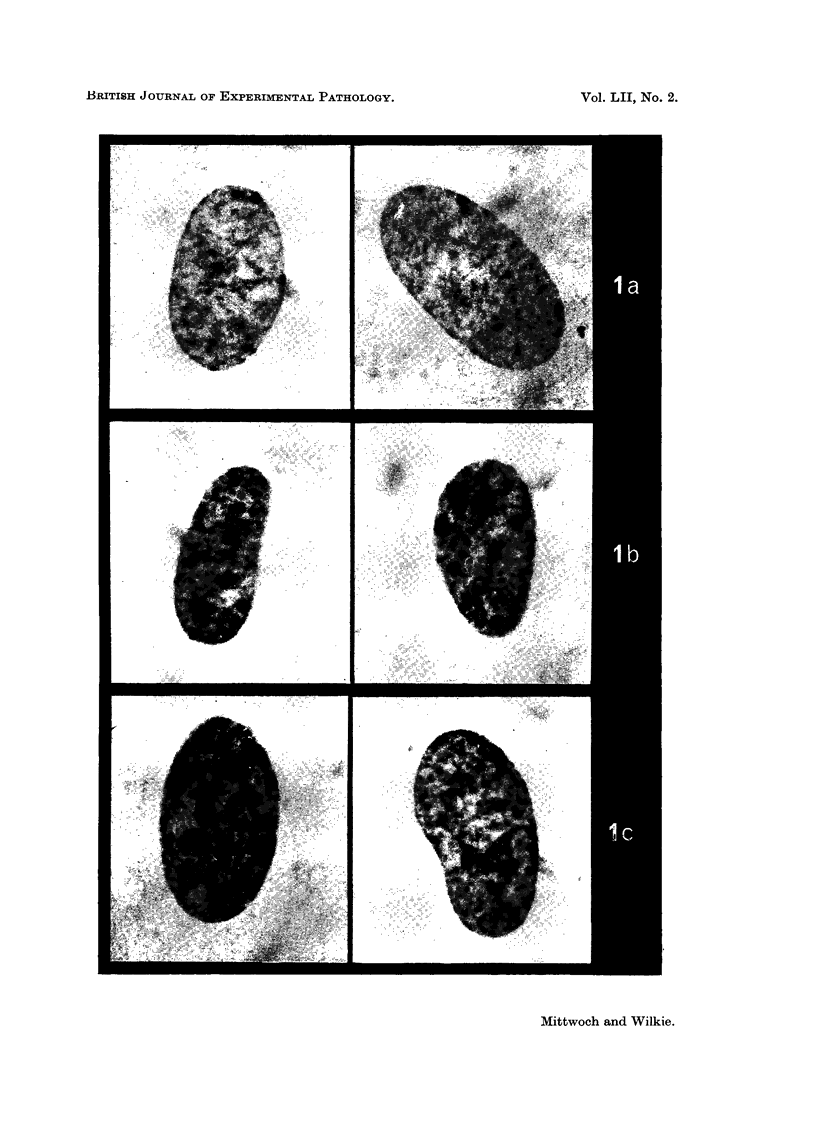
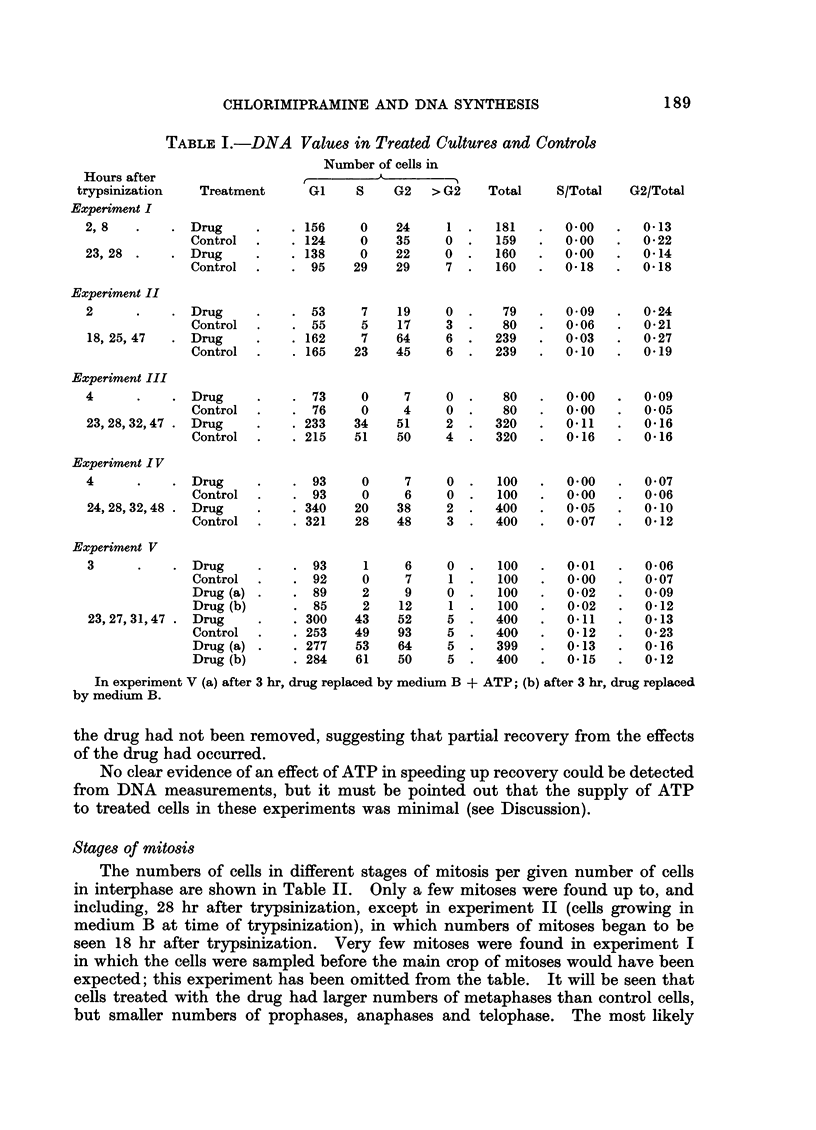
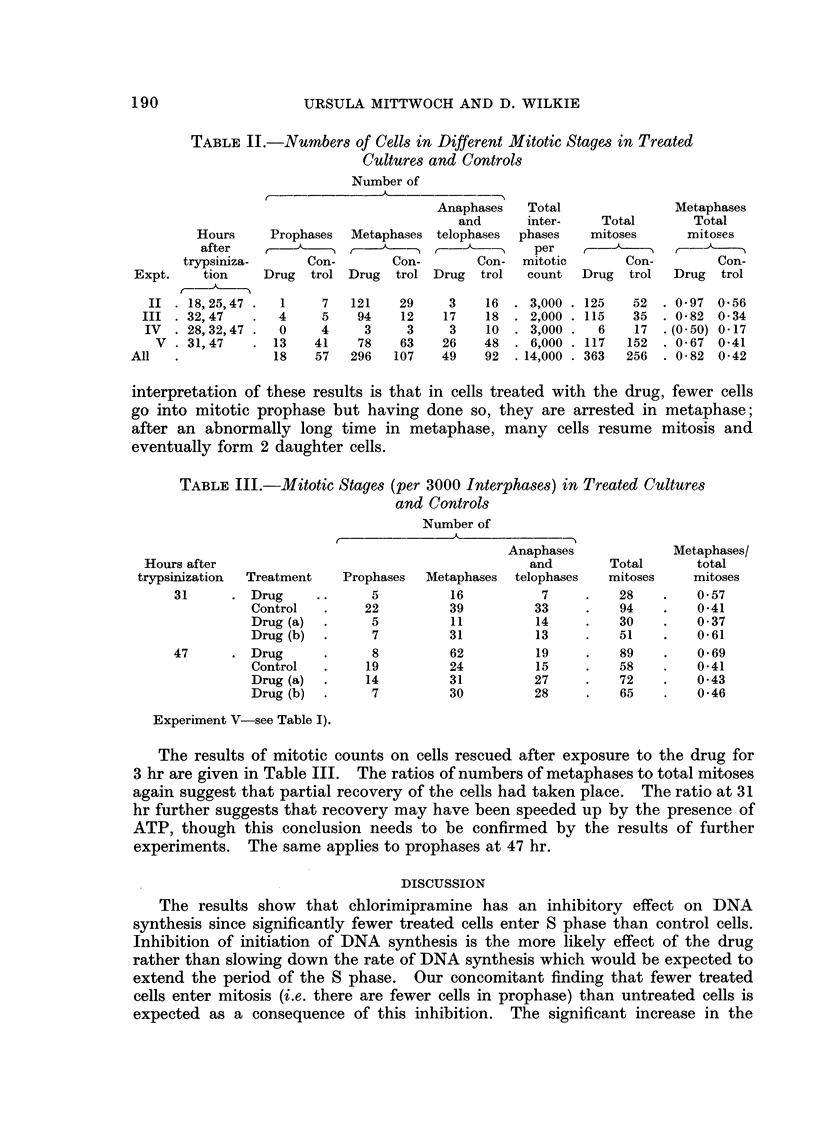

Images in this article
Selected References
These references are in PubMed. This may not be the complete list of references from this article.
- Wilkie D., Delhanty J. Effects of chlorimipramine on human cells in tissue culture. Br J Exp Pathol. 1970 Oct;51(5):507–511. [PMC free article] [PubMed] [Google Scholar]



